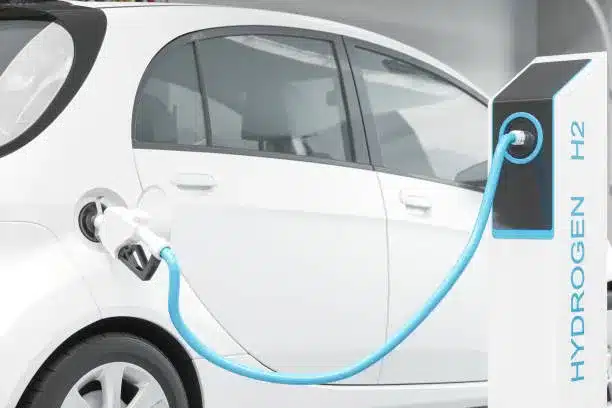
In today’s rapidly evolving automotive landscape, alternative fuel sources are more than just a buzzword — they’re shaping the future of transport. Among these, Hydrogen Fuel Cell Vehicles (FCVs) have been around for decades now. However, EVs appear to won the battle to become the front runner for sustainable transportation. This begs the question, what are FCVs really and what are their benefits over EVs?
What Are Hydrogen Fuel Cell Vehicles?
Hydrogen Fuel Cell Vehicles use hydrogen gas to power an onboard electric motor. Unlike traditional gasoline engines, FCVs produce electricity by merging hydrogen from the vehicle’s tank with oxygen from the atmosphere in a fuel cell — a process that only emits water and heat. Not only is this method of generating power impressively clean, but it also provides several advantages over traditional internal combustion engines.
Historically, one of the significant concerns surrounding FCVs was safety. However, with advances in technology, hydrogen storage and transport have seen considerable improvements. Modern hydrogen tanks are constructed with state-of-the-art materials, ensuring they are both robust and leak-proof. Additionally, hydrogen, being the lightest molecule, disperses quickly in the air, reducing the risks associated with potential leaks. Vehicles are now designed with advanced sensors to detect and address any hydrogen-related anomalies, further enhancing their safety credentials.
Several manufacturers have already launched or are in the process of launching hydrogen fuel cell vehicles. Toyota’s Mirai and Hyundai’s Nexo are among the pioneers, with both vehicles boasting impressive ranges and quick refueling times — a stark contrast to the longer charging times associated with electric vehicles (EVs). Other brands are hot on their heels, showcasing the growing interest in hydrogen as a viable fuel source.
Why Hydrogen Deserves the Limelight Over EVs
Electric Vehicles
While Electric Vehicles (EVs) have received significant attention and investment, it’s essential to scrutinize their touted environmental benefits. A significant concern lies in the production and disposal of EV batteries. Mining the materials for these batteries has considerable environmental impacts, and the recycling process remains both complex and energy-intensive.
Moreover, while EVs produce zero emissions at the tailpipe, the same can’t be said for their entire lifecycle. The environmental impact of an EV is intrinsically linked to the source of its electricity. As of now, a significant portion of the world’s electricity still comes from non-renewable sources, diminishing the green credentials of EVs.
Hydrogen Vehicles
Hydrogen, on the other hand, when sourced sustainably, offers a cleaner alternative. It can be produced using a range of natural processes and has the potential to be a genuinely zero-emission fuel source from production to utilization.
Looking Ahead: The Call to Action for OEMs and Governments
Original Equipment Manufacturers (OEMs) and governments worldwide have a golden opportunity, and arguably, a responsibility, to pivot towards more sustainable transportation alternatives. Hydrogen Fuel Cell Vehicles, with their myriad benefits over traditional gasoline vehicles and even EVs in their current state, present a compelling case.
By investing in hydrogen production infrastructure and providing incentives for the adoption of FCVs, governments can pave the way for a cleaner, more sustainable future. OEMs, in partnership with these initiatives, can lead the charge by innovating and producing vehicles that not only meet but exceed the expectations of modern consumers.
As we navigate the intricate roadmap of sustainable transportation, Hydrogen Fuel Cell Vehicles emerge as a beacon of promise. With every turn of the wheel and every mile driven, they challenge our traditional notions and present a compelling vision for the future. Embracing hydrogen’s potential today can catalyse a cleaner, brighter tomorrow for all.